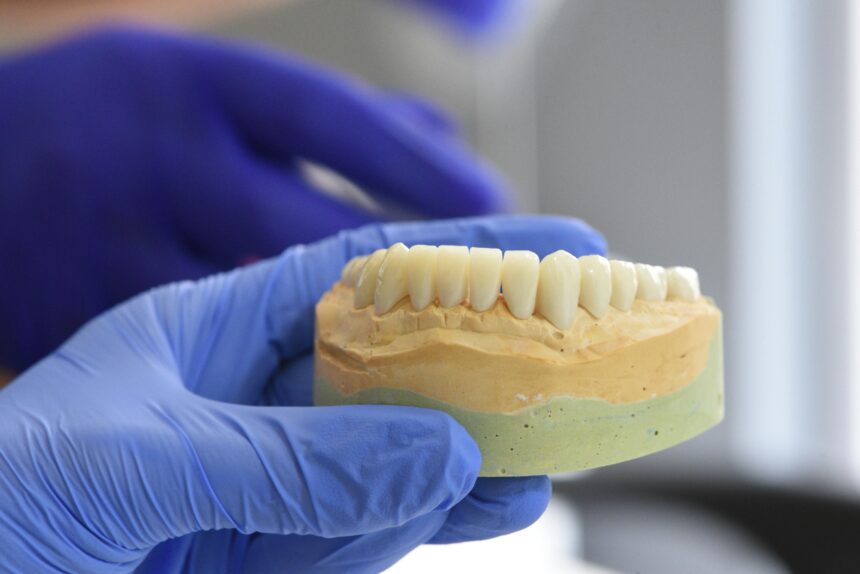In the realm of dental restoration, few advancements have proven as impactful as dental implants. For individuals grappling with tooth loss, the journey to a new smile through Medford dental implants can be life-changing. This article explores the intricacies of dental implants, detailing the process, benefits, and what individuals in Medford can expect when choosing this innovative solution for restoring their smiles.
Understanding Dental Implants
Dental implants are artificial tooth roots made from biocompatible materials, usually titanium, that are surgically placed into the jawbone. They serve as a stable foundation for replacement teeth, providing a long-lasting solution for individuals who have lost one or multiple teeth. Unlike dentures or bridges, which may shift or require support from neighboring teeth, dental implants integrate directly with the jawbone, mimicking the function and appearance of natural teeth.
The structure of a dental implant consists of three main components:
- Implant Fixture: This is the titanium post that is inserted into the jawbone, acting as the root of the new tooth. Over time, it fuses with the bone through a process called osseointegration.
- Abutment: Once the implant has successfully integrated with the jawbone, an abutment is placed on top of the implant fixture. This component connects the implant to the replacement tooth (crown).
- Crown: The crown is the visible part of the dental implant, designed to resemble a natural tooth in both appearance and function. Crowns can be crafted from various materials, including porcelain and ceramic, to achieve the desired aesthetic.
The Benefits of Choosing Dental Implants
The decision to opt for dental implants can be transformative, offering numerous benefits that can significantly enhance an individual’s quality of life. Here are some key advantages of dental implants:
1. Improved Aesthetics
One of the most immediate benefits of dental implants is their ability to restore a natural appearance. Implants are designed to blend seamlessly with existing teeth, providing a beautiful and confident smile. Patients can enjoy social interactions without feeling self-conscious about gaps in their teeth.
2. Enhanced Functionality
Dental implants function just like natural teeth, allowing individuals to eat, speak, and engage fully in daily activities without concern. Unlike dentures, which may shift or cause discomfort, implants provide a stable foundation, enabling patients to enjoy a varied diet without restrictions.
3. Bone Preservation
Tooth loss often leads to bone resorption, where the jawbone deteriorates due to lack of stimulation. Dental implants help preserve jawbone density by stimulating the bone in the same way that natural tooth roots do. This preservation not only supports facial aesthetics but also prevents further oral health complications.
4. Longevity and Durability
With proper care and maintenance, dental implants can last a lifetime. This durability makes them a cost-effective solution in the long run, as they do not require the frequent replacements or adjustments associated with dentures or bridges.
5. Improved Oral Health
Dental implants do not rely on adjacent teeth for support, meaning surrounding teeth remain intact. This promotes better overall oral health, as patients can maintain their natural tooth structure while replacing missing teeth. Additionally, implants can be cleaned just like natural teeth, allowing for easier oral hygiene.
6. Increased Comfort
Patients often report that dental implants feel more comfortable than removable dentures. With implants, there is no risk of slipping or irritation, allowing individuals to speak and eat with confidence and ease.
The Journey to Receiving Dental Implants
Understanding the journey to obtaining dental implants can help alleviate any concerns and prepare individuals for what to expect. Here’s a step-by-step overview of the typical process involved in receiving dental implants:
1. Initial Consultation
The journey begins with a consultation with a qualified dental professional. During this visit, the dentist will evaluate your oral health, review your medical history, and discuss your goals for treatment. Imaging tests, such as X-rays or 3D scans, may be performed to assess the condition of your jawbone and determine the best approach for your implants.
2. Treatment Planning
Once eligibility for dental implants is confirmed, a personalized treatment plan will be developed. This plan outlines the number of implants required, the type of anesthesia to be used, and the timeline for the procedure. It is essential for the dentist to consider factors such as bone density and overall health during this stage.
3. Implant Placement
The next step is the surgical placement of the dental implants. This procedure is typically performed under local anesthesia or sedation, depending on the complexity of the case and the patient’s comfort level. The dentist will make an incision in the gum tissue, expose the bone, and carefully insert the implant fixture into the jawbone. After placement, the gums will be sutured closed to allow for healing.
4. Osseointegration
Following the surgery, a healing period is necessary for osseointegration to occur. This process allows the implant to integrate with the jawbone, creating a strong and stable foundation for the crown. The healing period typically lasts several months, during which the body works to fuse the implant with the bone.
5. Abutment Placement
Once osseointegration is complete, the patient returns to the dentist for the placement of the abutment. This minor procedure involves reopening the gum tissue to attach the abutment to the implant fixture. After this step, a healing period of a few weeks is usually required for the gums to heal around the abutment.
6. Crown Fabrication and Placement
The final step is the creation and placement of the custom crown. Impressions will be taken to ensure that the crown fits perfectly and matches the surrounding teeth in color and shape. Once the crown is ready, it will be securely attached to the abutment, completing the dental implant restoration.
Factors to Consider Before Getting Implants
While dental implants offer numerous benefits, there are several factors to consider before proceeding with the treatment:
1. Health Status
Candidates for dental implants should have good overall health and healthy gums. Certain medical conditions or medications may affect healing and osseointegration, so it’s important to discuss any health concerns with your dentist.
2. Bone Density
Adequate bone density is essential for successful implant placement. If bone loss has occurred due to tooth loss, additional procedures, such as bone grafting, may be necessary to ensure a stable foundation for the implants.
3. Commitment to Oral Hygiene
Maintaining good oral hygiene is crucial for the longevity of dental implants. Patients must commit to regular dental check-ups and practice proper oral care at home to ensure the success of their implants.
Conclusion
The journey to a new smile through dental implants can be a transformative experience for individuals in Medford. With numerous benefits, including improved aesthetics, enhanced functionality, and long-term durability, dental implants represent a reliable solution for those dealing with tooth loss. By understanding the steps involved in the implant process and considering the factors at play, individuals can make informed decisions that contribute to their oral health and overall well-being. Embrace the opportunity to restore your smile and reclaim your confidence with dental implants, and take the first step toward a brighter, healthier future today.



